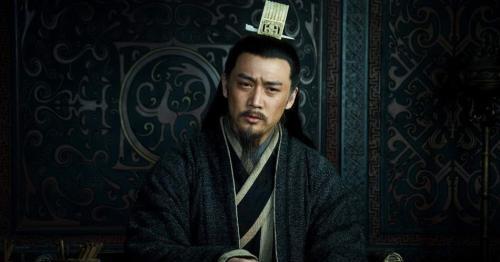Zhuge Liang's talent, it is estimated that few people do not know. It can be said that as long as the ancient think tank, military master, strange man and other words are mentioned, there will definitely be Zhuge Liang's nomination.
But in fact, Zhuge Liang's various mysterious passages are only descendants, or "Romance of the Three Kingdoms" to "god" him. Since Zhuge Liang's status has been raised to such a high level, there are naturally no less rumors about him, such as the 12-word prophecy left after his death. These 12-word prophecies are "Lord of the Water Moon, The Lord of the Water Moon, the Great One, the Eighteenth, and the Dragon Reclining." ”

These 12 words are estimated that many people do not know what the meaning is, here is the first explanation. The first three sentences, or the first 8 words, can be combined into 8 words. "Water Moon Lord" spelled together is the word "Qing"; "Geng is not big", "not big" does not mean the "small" word? Spelled together is "Kang"; "Gai Eighteen" is better understood, and the two words under the head of the treasure cover are spelled "Song".
The three words of Qing Kang Song sound like there is no beginning and no tail, what does it mean? This should be understood in conjunction with the last 3 words "dragon reclining". Zhuge Liang's nickname is Wolong, and the dragon reclining means that his ancestral hall will be repaired, so it is "dragon reclining". It is easy to understand that during the Kangxi period of the Qing Dynasty, a person surnamed Song came back to renovate Zhuge Liang's ancestral hall.
So is there really such a magic? According to the source of this sentence, there really is. This sentence was found behind Zhuge Liang's sculpture during the Kangxi period of the Qing Dynasty, when a person named Send kefa was renovating Zhuge Liang's ancestral hall, so it is believed that Zhuge Liang's prophecy is very accurate, and he can even predict what will happen after a thousand years. It's just that this incident has never been recorded in the canonical history, and it is only some anecdotes in the wild history.
What's more, Zhuge Liang's ancestral hall was not built by himself. In 263 AD, Liu Chan built a temple for Zhuge Liang in Qiuyang; in 760 AD, Emperor Suzong of Tang, Li Hengzun, made Taigong Jiang the King of Wucheng, and at the same time as building the Wu Temple, he also established the "Ten Zhe of the Wu Temple", and Zhuge Liang was also among them. Therefore, whether it is Liu Chanli's Zhuge Liang Temple or Li Hengli's Martial Temple, it is not from Zhuge Liang's own hand, so even if there is a prophecy, it is certainly not left by Zhuge Liang.
What did Zhuge Liang say on his deathbed? We have to look for more reliable ones from the main history. Chen Shou described Zhuge Liang's last words on his deathbed in the Chronicle of the Three Kingdoms as follows: "Liang left his life to bury The Dingjun Mountain in Hanzhong, because the mountain is a grave, the tomb is full of coffins, and the time clothes are used, and there is no need for utensils." Pei Songzhi wrote in the "Notes on the Chronicle of the Three Kingdoms": "Liang grain is exhausted, worried about the blood of Kui Ou, one night to burn the camp and run away, into the valley, the pawn." ”
The content recorded in these two more reliable historical materials is also more consistent with Zhuge Liang himself. Who is Zhuge Liang? If nothing else, it is absolutely not wrong to bow down and die. Before he died, he definitely thought about how to arrange how the Shu Han army should behave, such as "burning the camp overnight and leaving, entering the valley"; and for the sake of frugality, there would certainly be no funeral. Such a last words are in line with Zhuge Liang's image.
The real Zhuge Liang in history has talent and talent, but it is far from being so magical. Chen Shou, who wrote the chronicle of the Three Kingdoms, was more objective in his evaluation, believing that he was good at managing civil affairs, could give a big blueprint for the development of the country, and could be comparable to Xiao He Guanzhong in terms of stewardship; but he lacked military talent, and the Northern Expedition exhausted the financial resources of the Shu Han people's livelihood for many years.
References: Romance of the Three Kingdoms, Notes on the Romance of the Three Kingdoms